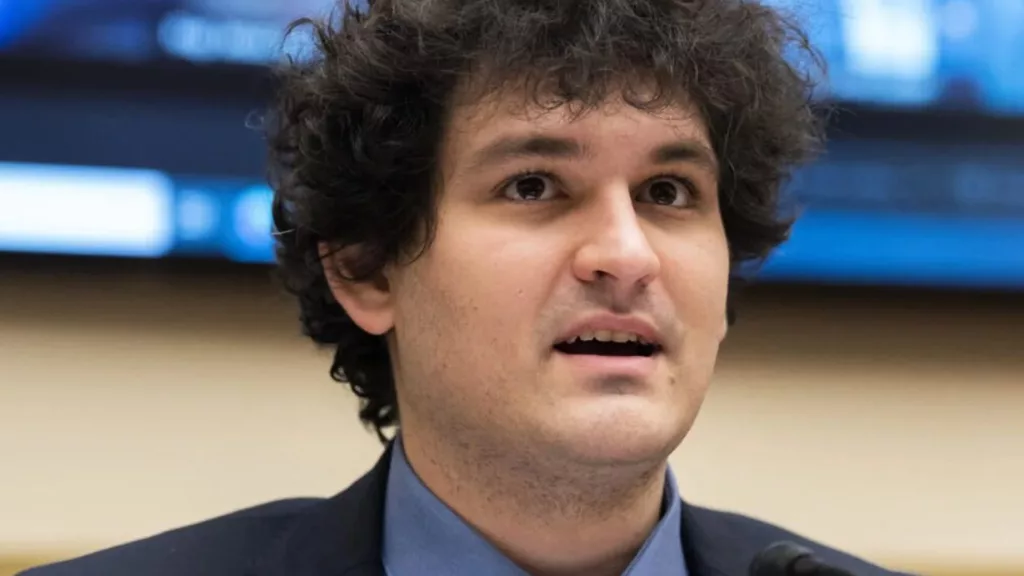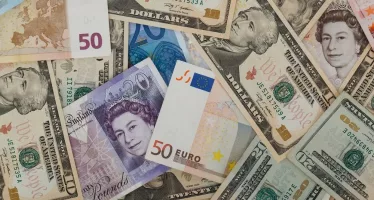Crypto Had a Brutal Year. What Comes Next?
An increase in caution might not be a bad thing, believes the Kellogg School’s Sarit Markovich…
The year since the collapse of cryptocurrency exchange FTX has seen US regulators, including the SEC, bring charges against the industry’s two biggest exchanges, Binance and Coinbase.
The industry is calling this new climate a “crypto winter”, and authorities have indeed taken a frosty view of digital currencies. “What we’re seeing now, after years of ambiguity and delay, is some clarity from the SEC,” says Sarit Markovich, clinical professor of strategy at the Kellogg School. “And what’s clear is that they’re not at all happy with the state of crypto.”

Sam Bankman-Fried
So, what might emerge from this latest moment of reckoning? For Markovich, the collapse of FTX and other exchanges was a wake-up call for an industry that lacked consumer awareness and transparency. And while she thinks crypto is here to stay, she expects to see a strong push toward defi, or decentralised finance. It means less risk that a single actor, or group of actors, can crash an exchange. In the meantime, retail investors and fintech entrepreneurs will probably move at a more deliberate pace, given the risks and the prospect of more regulatory enforcement.
“There’s definitely more caution now, which might not be a bad thing,” says Markovich. “Before the fall of FTX, people weren’t very careful in terms of the risk involved in projects they were investing in, or the level of transparency the project offered. Many of them are now entering back into the market, but they’re doing so with a little more awareness and caution.”
A Win for DeFi?
Caution is certainly justified. The trial of Sam Bankman-Fried has shown how dangerous the hype machine can be. FTX used customer deposits to invest in other companies, sponsor political ad campaigns, and purchase deluxe real estate.
FTX was a centralised exchange, which some view as its primary flaw. These exchanges tend to produce the same problems that the earliest crypto advocates were trying to solve in the first place.
The whole idea behind Bitcoin and the blockchain it ran on was to circumvent unreliable centralised institutions, such as governments and banks, which could charge onerous fees, misappropriate funds, or simply fail.
Ethereum tried to expand on this, using a network of “smart” contracts to execute transactions. With decentralised exchanges — at least theoretically — you remove the need to trust a central authority with your money, whether it’s JP Morgan, Bernie Madof, or Sam Bankman-Fried. “When you give a small group too much control over other people’s money, that’s when things are going to fail,” Markovich says. “Fans of defi are actually saying, ‘Hey, we told you so’.”
The Future of Crypto?
“Given all the uncertainty, it’s not exactly a bull market,” she says, “but there’s definitely more trust now in decentralised exchanges.” One of the most popular is Uniswap. Launched in 2018, it allows users to directly swap cryptocurrencies using Ethereum-based smart contracts.
It might not be for everyone. For those accustomed to centralised exchanges such as Binance or FTX, a defi exchange, or DEX, takes some getting used to. The typical interface is less user-friendly. There’s also the harrowing prospect of forgetting the password to unlock a digital wallet. Lose that, and you lose access to your crypto assets — forever.
The final adoption barrier has to do with the nature of trading itself — or swapping, as the users of a defi exchange would call it. Because you’re swapping tokens instead of buying them, and because the value of tokens fluctuates with each transaction, there’s an element of uncertainty when executing a swap.
Effectively, the price you get depends on whether others were able to execute transactions ahead of you. It would be like swapping dollars for yen at the airport, only much murkier, and with the possibility that you might end up with fewer yen if someone “front-runs” your swap.
And while Markovich has done research that suggests this slippage — the difference between the expected price and the actual price — is pretty close to the “spread” in centralised exchanges. It’s still a potential barrier. “Psychologically,” she says, “it’s a concern. It would take some time for people to get comfortable with that.”
Yet it does appear that the industry’s energy and innovation are moving toward decentralised exchanges. This momentum is tempered by the need for fintech entrepreneurs to avoid the mistakes that brought down Luna, one of the major defi crypto projects that went bust last year, while finding a way to offer products and services that are user-friendly and transparent.
Luna, the native blockchain token of Terra, crashed due to its connection to TerraUSD (UST), the network’s algorithmic stablecoin. Unlike fiat-backed stablecoins, special cryptocurrencies backed by established national currencies such as the dollar, UST’s stability was derived from algorithms that linked its value to Luna. While some in the defi community were sceptical that an algorithm achieve that, the hike in Luna’s price attracted many to buy the token.
“I really do see this push toward more decentralisation,” says Markovich, “and I think these projects will be more careful now with their algorithms. The fact that exchanges like Uniswap and MakeDao are still around and doing well builds a lot of confidence.”
Drop in VC Investment
At the same time, there’s been a sharp decline in venture-capital funds for crypto firms, and for blockchain technology generally.
“A lot of these start-ups know it will be hard for them to raise funds, so they’ll only spend on bets that they feel very strongly about,” she predicts. “Which means that innovation might slow down, but that could be a good thing, since some of the innovation was bad.”
It was certainly destructive. After last year’s dramatic losses across the industry, the overall crypto market is now valued at roughly a third of what it was in 2021.
The innovation that is moving forward is more focused on integrating crypto-based technologies into mainstream finance. Over the Summer, Paypal launched a stablecoin backed by the US dollar. “I think you’ll see more and more of this kind of integration,” Markovich says. “Things are still progressing, just at a slower, more careful pace.”
Showdown with the SEC
These firms have reason to play it safe. The SEC has filed a number of lawsuits as part of its effort to regulate the industry. It calls Coinbase and others “unregistered securities”. What’s interesting to Markovich is that firms are winning these cases.
In August, Grayscale received the right to create a Bitcoin exchange-traded fund. In September, Uniswap won a potentially precedent-setting case over fraud on defi exchanges. That was good news for Coinbase, because it showed there might be a limit to applying existing securities laws to crypto products and services.
But Markovich says the industry still has work to do in clarifying their platforms and protocols, so that more crypto assets can be given the stamp of legitimacy.
Following the fall of FTX, Binance started to provide what it calls “proof of reserve” to boost users’ confidence that it held the funds to back its assets. Coinbase is a public company, with all the regulation and transparency that comes with it. Still, there is a lot of discussion about the best way to prove that the required reserves are indeed held.
“I think that what Coinbase is trying to do is great,” Markovich says. “They’ve been working with the regulators and educating the market. Which is ironic, because that’s what Bankman-Fried was trying to do. It can only work if the companies are honest and transparent.
“But I think that that’s the best thing that can happen to the crypto market.”
- This story first appeared in Kellogg Insight.
You may have an interest in also reading…
Nick D’Aloisio: Coding Philosopher
Oxford undergraduate Nick D’Aloisio is no average student. The self-taught programmer became a teenage millionaire in 2012 when he sold
Dollar Strains — Our Currency, Your Problem: Specialised Investment Research and Analysis from PGM Global Inc.
Unlike their DM counterparts, EM central banks have started to cut rates, in some cases aggressively, to offset weakening growth
Could Elon Musk Revolutionise Social Media by Acquiring TikTok?
The U.S. operations of TikTok face an uncertain future as the Supreme Court prepares to rule on a potential ban


















































































